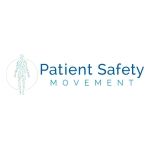New model makes it easier for hospitals and healthcare organizations to participate and provides free coaching to create a foundation for safe and reliable care
IRVINE, Calif.–(BUSINESS WIRE)–#PtSafety–Every year, more than 4.8 million patients lose their lives to preventable medical errors worldwide. The Patient Safety Movement Foundation (PSMF), a global non-profit, is committed to achieving zero preventable patient deaths by 2030 and has launched a revised commitment model for hospitals and healthcare organizations to help make its goal a reality.
The Patient Safety Movement Foundation’s initial model focused on securing healthcare organization commitments to target the leading causes of preventable harm and death occurring in healthcare facilities. Today’s updates instead ask organizations to commit to building and sustaining a foundation for safe and reliable care – and provide free “Actionable Patient Safety Solutions” (APSS), which include evidence-based best practice summaries and solutions, educational resources and virtual coaching to help organizations integrate these best practices into their existing processes.
“Under our previous commitment model, our hospital and health system partners reported that they saved 366,353 lives between 2012-2020 – showing that committing to implementing processes to prevent medical harm and deaths does save lives,” said David B. Mayer, MD, CEO of Patient Safety Movement Foundation. “But to reach our ultimate goal of zero, we realized it was time for a different approach with an emphasis on creating a foundation for safety. This is where we see gaps in implementation globally and we have to help healthcare organizations focus on the basics.”
The Patient Safety Movement Foundation will concentrate on three critical components: a person-centered culture of safety; a holistic and continuous improvement framework; and an effective model for sustainment. Its interdisciplinary global leaders have created APSS Blueprints, APSS Education and virtual APSS Coaching. The APSS Blueprints are best-practice summaries leveraging the latest evidence for performance improvement around a variety of topics like healthcare-associated infections, medication safety and even mental health. APSS Education includes videos, webinars and articles to enhance the APSS Blueprints. Finally, APSS Coaching ties it all together with skilled consultants partnering alongside healthcare organizations to walk them through the specifics of how to navigate improving their processes. Together, these offerings complement one another to create a powerful tool for hospitals to use to improve their care.
“The virtual coaching services we offer to our committed healthcare organizations typically cost hundreds of thousands or even millions of dollars, but we believe that if we truly want to eliminate harm from preventable medical errors, these services should be free,” stated Donna Posser, DNP, RN, NE-BC, FACHE, BCPA, chief clinical officer at Patient Safety Movement Foundation. “We have developed this material and enhanced our clinical support services to help remove barriers to adoption and make it even easier and more cost-effective for hospitals, long-term care facilities, ambulatory surgery centers, primary care clinics and beyond to reinvent their systems and implement proven measures for increasing patient and staff safety.”
Committed hospital and healthcare organization partners will also be asked to share performance data, including the number of serious safety events, precursor events and near misses on an annual basis, which will be kept private and shared only as aggregated data combined from organizations across the globe to showcase the proven positive impact of this model on patient safety outcomes.
To learn more about how to make a commitment, visit https://patientsafetymovement.org/partners/commitments/commitment-faqs/. To access the free clinical services and products offered, visit https://patientsafetymovement.org/clinical-support-products-and-services/.
About the Patient Safety Movement Foundation: Each year, more than 200,000 people die unnecessarily in U.S. hospitals. Worldwide, 4.8 million lives are similarly lost. The Patient Safety Movement Foundation (PSMF) is a global non-profit that offers free tools to help achieve ZERO preventable deaths from hospital errors. The Patient Safety Movement Foundation was established through the support of the Masimo Foundation for Ethics, Innovation and Competition in Healthcare to reduce that number of preventable deaths to ZERO. Improving patient safety requires a collaborative effort from all stakeholders, including patients, healthcare providers, medical technology companies, government, employers and private payers. PSMF’s World Patient Safety, Science & Technology Summit brings together the world’s best minds for thought-provoking discussions and new ideas to challenge the status quo. Its Actionable Patient Safety Solutions (APSS) provide evidence-based processes to help hospitals eliminate errors and its Open Data Pledge encourages healthcare technology companies to share the data for which their products are purchased. Visit patientsafetymovement.org to learn more, and follow PSMF on Linkedin, Twitter, Instagram and Facebook.
Contacts
Leslie Licano, Beyond Fifteen Communications, Inc.
psmf@beyondfifteen.com | (949) 733-8679 ext.101








